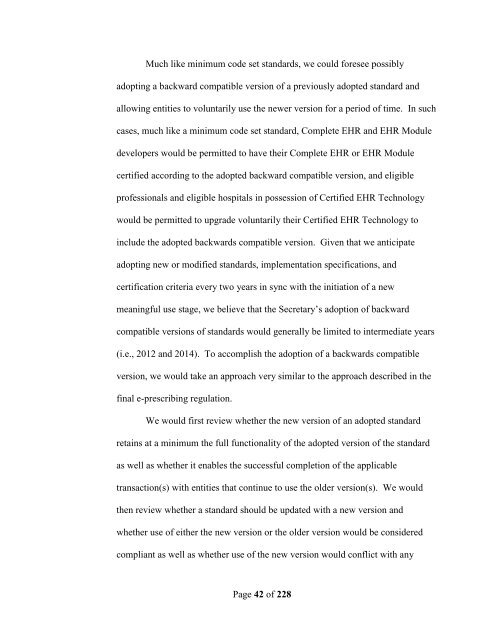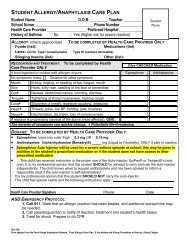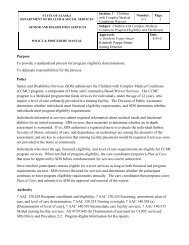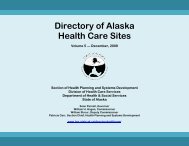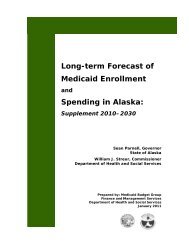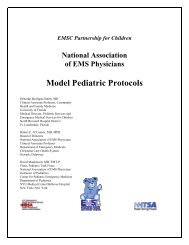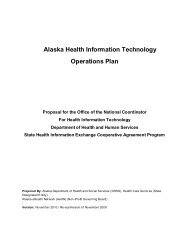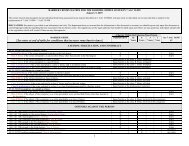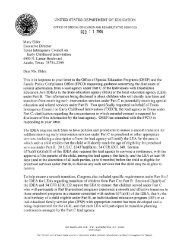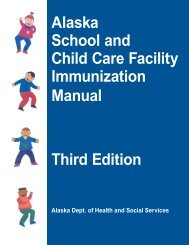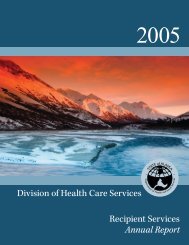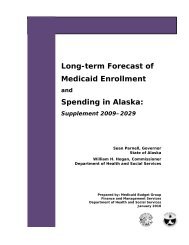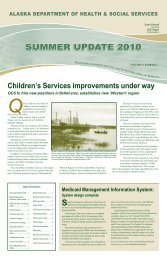ehr onc final certification - Department of Health Care Services
ehr onc final certification - Department of Health Care Services
ehr onc final certification - Department of Health Care Services
You also want an ePaper? Increase the reach of your titles
YUMPU automatically turns print PDFs into web optimized ePapers that Google loves.
Much like minimum code set standards, we could foresee possibly<br />
adopting a backward compatible version <strong>of</strong> a previously adopted standard and<br />
allowing entities to voluntarily use the newer version for a period <strong>of</strong> time. In such<br />
cases, much like a minimum code set standard, Complete EHR and EHR Module<br />
developers would be permitted to have their Complete EHR or EHR Module<br />
certified according to the adopted backward compatible version, and eligible<br />
pr<strong>of</strong>essionals and eligible hospitals in possession <strong>of</strong> Certified EHR Technology<br />
would be permitted to upgrade voluntarily their Certified EHR Technology to<br />
include the adopted backwards compatible version. Given that we anticipate<br />
adopting new or modified standards, implementation specifications, and<br />
<strong>certification</strong> criteria every two years in sync with the initiation <strong>of</strong> a new<br />
meaningful use stage, we believe that the Secretary’s adoption <strong>of</strong> backward<br />
compatible versions <strong>of</strong> standards would generally be limited to intermediate years<br />
(i.e., 2012 and 2014). To accomplish the adoption <strong>of</strong> a backwards compatible<br />
version, we would take an approach very similar to the approach described in the<br />
<strong>final</strong> e-prescribing regulation.<br />
We would first review whether the new version <strong>of</strong> an adopted standard<br />
retains at a minimum the full functionality <strong>of</strong> the adopted version <strong>of</strong> the standard<br />
as well as whether it enables the successful completion <strong>of</strong> the applicable<br />
transaction(s) with entities that continue to use the older version(s). We would<br />
then review whether a standard should be updated with a new version and<br />
whether use <strong>of</strong> either the new version or the older version would be considered<br />
compliant as well as whether use <strong>of</strong> the new version would conflict with any<br />
Page 42 <strong>of</strong> 228


